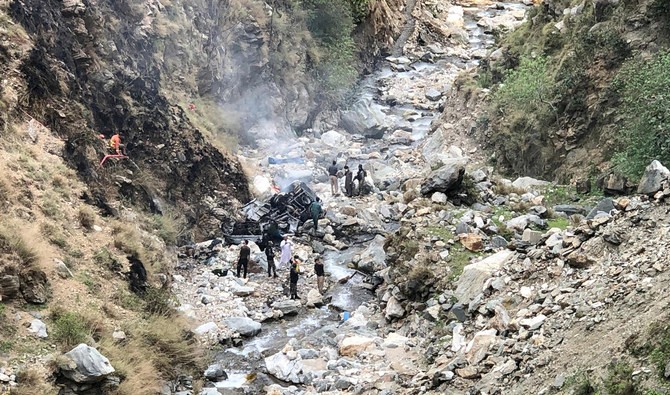Attacks indicate widespread ire against CPEC in Pakistan

Two recent attacks in close succession, on Chinese personnel and Chinese facilities in Pakistan underscore the degree of unhappiness of the common Pakistani people with the exploitative Belt and Road Initiative that the ruling elites in Beijing and Islamabad have thrust on them.
Latest in the series of such attacks, five Chinese workers were killed (Mar 26) when a vehicle packed with explosives was rammed into the bus in which they were travelling from Islamabad to their camp at the Dasu hydro-electric dam in the Khyber-Pakhtunkhwa province of Pakistan. The Pakistani driver of the vehicle was also killed in the explosion.
Earlier, militants launched an attack (Mar 25) on the Pakistani naval station PNS Siddique, one of the core functions of which was to provide support to the China Pakistan Economic Corridor, the flagship BRI project in Pakistan. Chinese drones are reported to be stationed at the naval air base at Turbat, in the Balochistan province of Pakistan,
While the Baloch Liberation Army was suspected to have carried out the attack on the naval air base, the deadly attack on Chinese workers at Khyber Pakhtunkhwa was suspected to have been carried out by Tehreek-e-Taliban Pakistan. The involvement of diverse militant groups in these attacks point to the widespread ire in Pakistan against the BRI projects being sponsored by China.
Earlier on March 20, in a symbolic attack on the Gwadar Port in the Balochistan province where China is planning to establish a naval base, heavily armed militants of the BLA entered the complex, opened fire and carried out multiple explosions. The Gwadar Port has been projected by Chinese and Pakistani authorities as the crowning glory of CPEC, though in commercial terms the port is a complete failure. It will, however, provide China with a convenient access to the Indian Ocean region.
In yet another similar attack on Chinese personnel at the Dasu hydro power dam by militants of the Tehreek-e-Taliban Pakistan in July 2021, nine Chinese engineers and four others were killed in a suicide bombing on a bus in which they were travelling.
Groups like the BLA and the TTP are opposed to Chinese investments in Balochistan and accuse China of exploiting the resource-rich province of Pakistan. The projects sponsored by China bring little benefit to the common people in Pakistan. On the other hand, Pakistan has to pay a high cost for the CPEC projects.
At Gwadar, local fishermen complain that they are no longer allowed to carry out fishing operations in the area where the port has come up. People have been forced to part with agricultural land in places where CPEC projects like power plants have come up. Charges of terrorism have been slapped on people who have protested against such forcible acquisition of land. The highly polluting thermal power plants have raised health issues as well.
The BLA has been vocal against the building of the CPEC, warning of more attacks if China does not vacate the Balochistan province. They have also warned that the BLA has formed a special unit particularly to attack Chinese personnel and installations in Balochistan. Incidentally, the responsibility of the latest attack on Gwadar Port has been claimed by the “Majeed Brigade” of BLA, which is opposed to Chinese investments in the Balochistan province and accuses China and Pakistan of exploiting the resources of the region.
Tehreek-e-Taliban and Taliban have been described as “two sides of the same coin.” Taking advantage of the U.S. withdrawal from Afghanistan, Beijing has been trying to extend its hegemony there; lured by the natural resources of Afghanistan. China has already invested in a copper mine and an oilfield in Afghanistan which has deposits of valuable minerals like copper, iron ore, rare earth, aluminium, gold, silver, zinc, mercury and lithium. Beijing wants Afghanistan, too, to be an important part of the CPEC. There is apprehension among the people of Afghanistan that all these resources of the country will now be wheeled away to China.
The diplomatic mission in China has demanded that Pakistan carries out a thorough investigation into the deadly attack at the Dasu hydro-power station. On an earlier occasion, Beijing had demanded that China be allowed to arrange its own security for Chinese personnel working in Pakistan. Islamabad has not agreed to the proposal, however, contending that this will amount to sacrificing the sovereignty of Pakistan to China.






